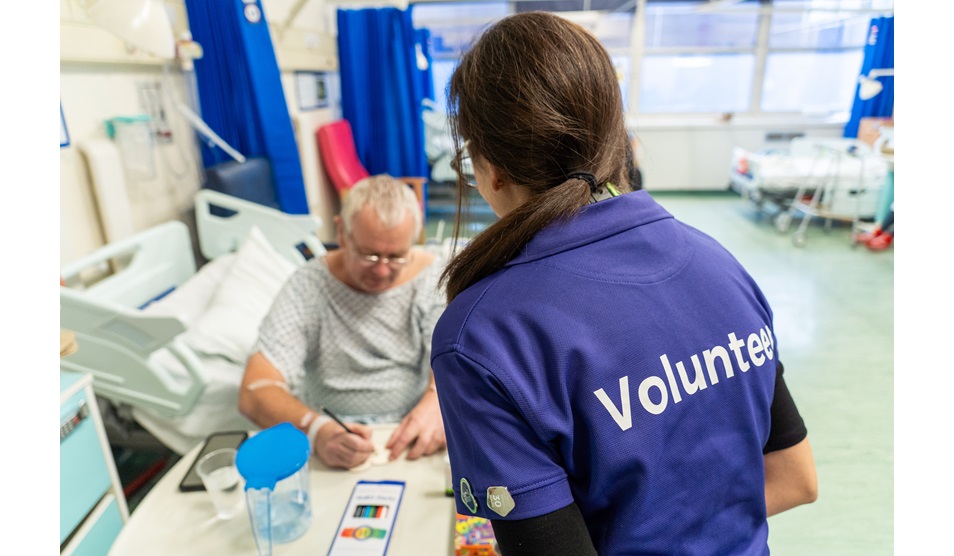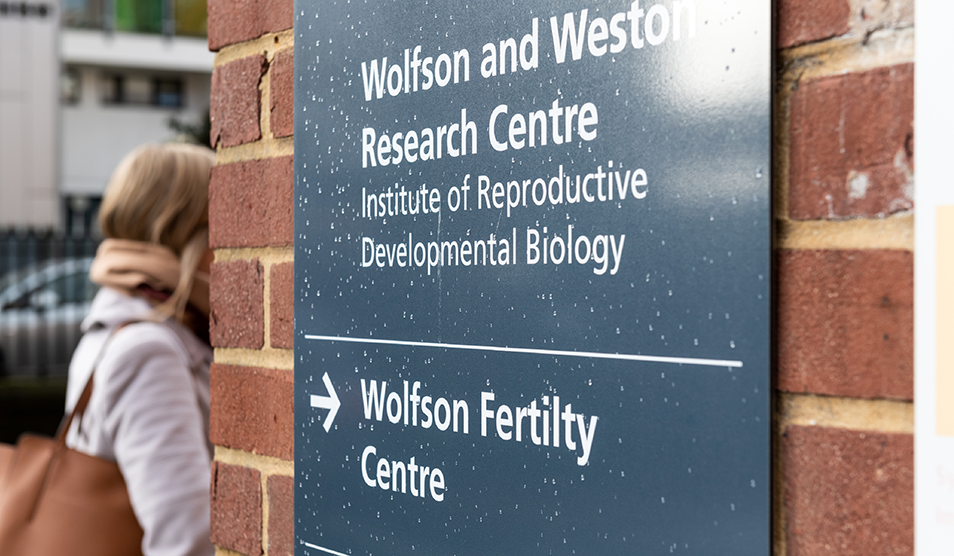ICU staff around the world showing signs of mental health conditions during Covid-19 pandemic
Nearly half of staff working in intensive care units during the Covid-19 pandemic could be experiencing mental health conditions, according to a new study of staff from seven countries.
Researchers studied 515 healthcare staff working in intensive care units (ICUs) in May 2020, who had put themselves forward to answer a mental health questionnaire. The team found that 48 per cent of participants showed signs of mental health conditions such as depression, insomnia and post-traumatic stress disorder (PTSD) when their anonymised answers were scored against clinical scales. For those who spent more than six hours in personal protective equipment (PPE) over the course of a day, the rate of answers indicating these mental health conditions was higher.
The authors also found that 57 per cent of respondents declared feeling very or extremely worried about getting infected, while 21 per cent were very or extremely worried about dying after catching the virus. Overall, 78 per cent of respondents reported feeling at least a little numb about the loss of human lives, and most (89 per cent) thought about these difficult experiences outside of work.
The study, led by researchers at Imperial College London who are also clinicians at Imperial College Healthcare, is published in the British Journal of Nursing and is the first to evaluate ICU workers’ mental health during the Covid-19 pandemic. The researchers suggest that the level of mental health disorders found among the ICU staff surveyed across the world should inform local and international wellbeing policies for those looking after the sickest patients.
Dr Ahmed Ezzat, lead author of the study and honorary clinical fellow at Imperial College London, is also a general surgery registrar at Imperial College Healthcare NHS Trust and was redeployed to provide support in ICU during the pandemic. He said: “This study provides us with an important insight and a stark reminder of the personal challenges healthcare staff are facing as a result of Covid-19.
“Mental illness still remains a taboo subject for some and this is no different for healthcare staff. Recent public campaigns in the UK have started the conversation, but we have a long way to go. Covid-19 has acutely exacerbated the issue, and we are concerned that staff resilience has been exhausted during the pandemic. National medium and long term resources will be vital next steps by policy makers to safeguard this workforce from severe mental illness. We have an opportunity to hold a national dialogue between healthcare leaders, stakeholders and governments around the world to address mental health within healthcare.”
During peaks of Covid-19 cases globally many patients were admitted to ICUs, exceeding capacity in some areas. To manage demand in the UK, many NHS hospitals increased intensive care capacity through redeployment of staff from other areas where planned procedures had been paused. These staff were required, with relevant support and training, to undertake different duties from their normal roles, which could be very daunting for staff without experience of working in similar areas.
The team recruited 515 healthcare workers across a range of roles such as nurses, junior and senior doctors, healthcare assistants and physiotherapists. Participants were from the UK (73), France (309), Italy (31), Taiwan (29), Belgium (2), Egypt (3) and China (68). The participants were self-selected and so researchers say it is possible those with mental health symptoms were more likely to put themselves forward. It is also difficult to make definitive conclusions for those countries with a very small sample size. 11 participants reported having pre-existing mental health conditions.
Using a detailed, anonymised questionnaire, the team asked participants questions relating to their wellbeing and anxieties. They scored the responses using three different grading systems, which are used in clinical settings to identify depression, PTSD and insomnia. The team found that, across the seven countries, 37 per cent of respondents exceeded the threshold for signs of depression, 78 per cent for insomnia and 28 per cent for PTSD.
The team also identified an increase in the scores in those who spent more than six hours per day in PPE. On average, there was a 40 per cent increase in the depression score for those spending over six hours in PPE compared to those who didn’t and a 23 per cent increase in the insomnia and PTSD scores, suggesting that signs of mental health conditions amplify with longer time spent in PPE. 85 per cent were in favour of individual counselling sessions for healthcare workers.
Even considering the study’s limitations, the researchers suggest the data provides a useful indicator of mental wellbeing across ICU staff and the findings can be used to devise local, national and international policies to address this.
Dr Matthieu Komorowski, is a consultant in intensive care at Imperial College Healthcare, senior author of the study and clinical senior lecturer in the department of surgery and cancer at Imperial College London. He commented: “The Covid-19 pandemic has impacted the physical and mental health of healthcare workers around the world. The large number of patients admitted to hospital at the height of the pandemic has put considerable demand and pressure on ICUs and staff. Although there has been much reporting on the mental health of frontline workers there has been little done to assess the impact of the pandemic on those who were treating the sickest patients in ICU.
“This study shows the impact of working in ICU on staff mental health. We saw high levels of depression, insomnia and PTSD. Factors such as individual isolation, loss of social support during lockdown, combined with a change in work pattern may have exacerbated these conditions.
“Work related stress is well documented in healthcare workers and this has been worsened by the Covid-19 crisis. The results of this study suggest that all ICU staff should have access to early and effective mental health assistance as part of a wider staff health and wellbeing strategy. This is especially pressing as hospitals and governments prepare their workforce for potential further surges of Covid-19 patients.”
Supporting staff at Imperial College Healthcare
Professor Tim Orchard, chief executive of Imperial College Healthcare NHS Trust said: “It’s vital that NHS trusts listen to their staff and understand the heavy impact the pandemic has had for many, and we are keen to hear from any member of staff who wishes to share their experience as this very helpful in allowing us to make improvements. Research and analysis such as this, which has been sensitively informed by the personal experience of the authors, is extremely valuable.
"Last year, we announced a new £1.7m programme of practical and wellbeing support directly inspired by feedback after the first wave of Covid-19 cases. This additional funding from Imperial Health Charity allowed us to almost treble the number of counsellors available and we are currently recruiting a dedicated clinical psychologist for ICU, alongside dedicated counsellors already permanently based in ICU at each of our sites. We recognise early intervention and access to a range of support is key. All our critical care staff have been contacted directly with the offer of psychological support and we will continue to offer emotional wellbeing groups wherever needed.
“We will continue to review the support we offer and adapt to our staff’s needs however we can. I’d encourage any staff member needing additional support to reach out, either to their line manager or another colleague or to our dedicated counselling service, CONTACT. ”
Staff experiences

Ahmed Ezzat, lead author of the study, is a general surgery registrar at Imperial College Healthcare NHS Trust and was redeployed to look after Covid-19 patients in ICU at Charing Cross Hospital during the first wave of the pandemic.
“During my redeployment, my role involved administering medications, IV lines and helping to roll and prone patients onto their stomachs to improve their breathing.
“At the beginning, the ICU was incredibly full and one of the wards which is usually dedicated to neurosurgery was taken over by Covid patients. I remember in April last year we had a huge influx of patients and at one point we had around 40 patients in ICU which was near to capacity.
“Working during the first wave was a new experience, we knew little about the virus and we didn’t have the treatment do now. It definitely felt scary especially as patients were dying in large numbers, we were stretched and we were all learning on the job.
“Being in intensive care generally is an emotionally draining environment because the patients are very sick. You spend a lot more time with them and you have much more interactions with their families.
“I was struggling with sleep, having nightmares and a general sense of feeling overwhelmed. The shift pattern - working three days of 12-hour shifts followed by nights - alongside all of the emotions made me feel isolated, especially as many people around me were not working in hospitals so their experience of the pandemic was very different.
“Having my family and loved ones support really helped me during those tough moments.
“In terms of support from the Trust, we had a consultant psychologist at Charing Cross who was available for chats and I had engaged in a couple of group sessions, which was helpful, not to mention team building.
“However, I think mental wellbeing is still a major issue and I feel like in our field it’s something we’re not encouraged to talk about so I think that we need a change in culture in terms of staff accessing help and hospitals providing it. Mental health is still somewhat of a taboo although things are changing and we are certainly taking it more seriously.
“In my personal life I was also trying to organise my wedding. We tried to plan it in three different countries and it got cancelled each time, which was frustrating.
“However, we ended up having a Zoom wedding with our parents and siblings in April last year and followed it up with a physical ceremony later on in the year. That was something positive in all of this.
“Looking back on the experience it fills me with humility. When you see a lot of death, sadness and anguish it brings you back down to earth. It’s also made me appreciate life more. I feel incredibly proud to have worked in ICU and of the contribution I made.”
Caoimhe Hogan is an intensive care nurse at Imperial College Healthcare NHS Trust and worked in ICU at Charing Cross Hospital during the pandemic.
“Critical care has always been one-to one so one nurse to one patient. The reason for this is that the patients are usually ventilated, they have a tube in their mouth and one or more organs are supported as well.
“However, when we started admitting lots of COVID-19 patients into ICU the demand exceeded the number of nurses we had to manage these patients. I ended up managing up to four ICU patients by myself and it was a really intense period.
“One experience that stands out for me was when I admitted my first Covid patient in March last year. It was my first experience of being in PPE for a long period of time and you really had to build your resilience to wearing it.
“I remember the patient was unwell when he came to us but had been sitting up and talking beforehand. The registrar was telling him to call his partner and tell her that he was about to be put to sleep and might not speak to her for days - which turned out to be months. I remembered being taken aback. Even though we’ve intubated lots of patients before, it was the first time the pandemic felt real to me.
“The peaks were nothing that I ever imagined and was hard to deal with.
“During the first peak we all tried to support each other and in the summer of last year the Trust held support groups for us. It didn’t feel right for me so I had private therapy. It definitely helped talking about how I was feeling, especially as I live on my own. When I did see my partner he isn’t in the healthcare profession so it was hard to talk to him about it.
“I never had problems with my mental health before but working during the pandemic was the spark. I found it difficult to sleep and because I wasn’t sleeping I became a different person all together. I was angry, snappy and little things were getting to me. I found going into work really hard and I was really emotional all the time. This went on for a long time and I was experiencing anxiety and panic attacks which really shook me.
“Looking back over the last year I’m definitely not the same person I once was, that is both negative and positive. I still struggle with sleep and anxiety however as a positive the last year has thought me so much about mental health and how we should be encouraging people to speak out, especially in our field of work."





